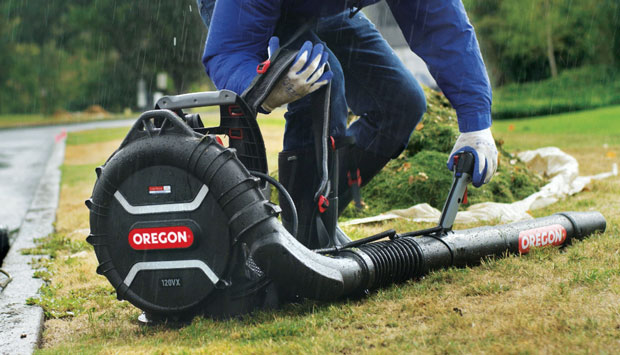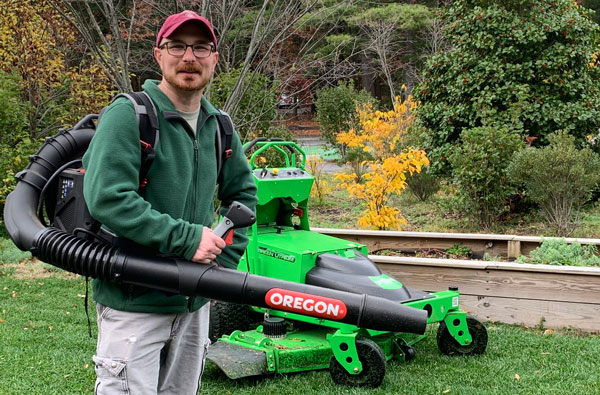
Landscape contractors need reliable and durable handheld equipment, says Jack Easterly, product manager for professional handheld products at Husqvarna.
“Landscaping is a productivity-based profession, and getting work done the fastest is at the top of contractors’ minds,” Easterly says. “The goal with battery equipment is to be able to substitute tool by tool and not have a loss in performance or productivity.”
Paul Vanderwal, senior global product manager for Oregon Outdoor Power Equipment, says the commercial landscape market has been skeptical about battery power, but that’s about to change.
“The technology now exists to produce the needed power, in fact, to outpower, some gas tools because of battery’s inherent advantages in torque,” Vanderwal says.

Contractors should compare long-term costs of battery and gas power when making a purchasing decision. “These tools are not just pieces of equipment; they are investments. And they’re meant to make money,” Vanderwal says.

One way contractors can earn more with battery-powered handheld equipment is with work schedule flexibility. No emissions and less noise allow work to be completed in public places, such as at universities or municipalities, and during more hours of the day.
Chris Hoffman, park supervisor for Walden Pond State Reservation, in Concord, Mass., says his crews use Oregon’s 120-volt series of string trimmers and backpack blowers. The equipment’s lower noise level allows the crew to perform maintenance in the park when visitors are present.
“The park is open seven days a week, 365 days a year. When else are we going to do the work?” he asks.

Before purchasing the equipment, Hoffman demoed the products on a rainy day. “(They) withstood the weather and can be used in any condition,” he says. With fewer moving parts, battery-powered equipment requires less maintenance than its gas-powered counterpart. Charging the batteries is the main task, which can happen at the end of the day, similar to refueling a fleet.
“There’s growing pains with battery equipment, but as you use it, you see more positives than you even thought were there,” Hoffman says.

